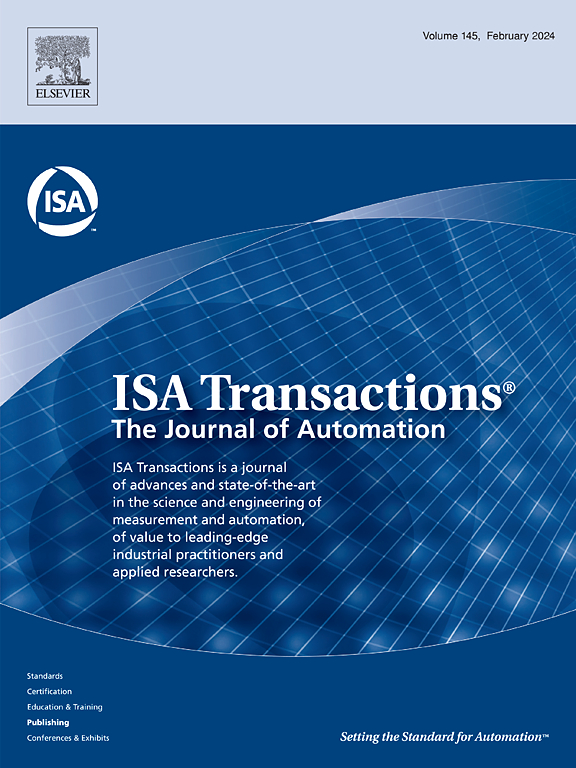基于平均状态估计的port- hamilton多智能体系统分布式编队控制。
IF 6.5
2区 计算机科学
Q1 AUTOMATION & CONTROL SYSTEMS
引用次数: 0
摘要
近年来,在信息技术和互联网快速发展的推动下,多智能体系统的编队控制逐渐成为一个研究热点。研究了具有port- hamilton (PH)动力学的多智能体机械系统的群体控制问题。首先,将地层问题转化为求解满足地层要求的优化问题。随后,为了引导闭环系统收敛到该优化问题的解,我们提出了两个分布式控制器。第一个控制器设计用于多智能体系统,其中地层输出由位置定义。值得注意的是,该控制器在闭环中保留了PH结构,简化了候选Lyapunov函数的选择,用于证明系统对期望形状的渐近收敛。为了表征闭环系统的最小收敛速度,提出了第二控制器。在此基础上,给出了闭环系统的指数稳定性和最小收敛速度。此外,这些控制器只要求代理与其邻居交换平均状态的估计,从而保护了它们的状态和值函数信息的隐私性。最后,通过非完整轮式机器人的应用实例验证了所提控制器的有效性。本文章由计算机程序翻译,如有差异,请以英文原文为准。
Distributed formation control for port-Hamiltonian multi-agent systems by average state estimation
In recent years, propelled by the rapid development of information technology and the Internet, the formation control of multi-agent systems has gradually emerged as a research hotspot. This paper focuses on the formation control problem of multi-agent mechanical systems with port-Hamiltonian (PH) dynamics. Firstly, the formation problem is converted into an optimization problem whose solution meets the formation requirements. Subsequently, in order to guide the closed-loop system to converge to the solution of this optimization problem, we propose two distributed controllers. The first controller is designed for multi-agent systems where the formation output is defined by position. Notably, this controller preserves the PH structure in the closed-loop, which simplifies the selection of candidate Lyapunov functions for proving the asymptotic convergence of the system to the desired formation. To characterize the minimum convergence rate of the closed-loop system, the second controller is proposed. Based on this controller, the exponential stability and the minimum convergence rate of the closed-loop system are provided. Additionally, these controllers only require agents to exchange estimations of the average state with their neighbors, thereby protecting the privacy of their state and value function information. Finally, the effectiveness of these controllers is verified through an application case on nonholonomic wheeled robots.
求助全文
通过发布文献求助,成功后即可免费获取论文全文。
去求助
来源期刊

ISA transactions
工程技术-工程:综合
CiteScore
11.70
自引率
12.30%
发文量
824
审稿时长
4.4 months
期刊介绍:
ISA Transactions serves as a platform for showcasing advancements in measurement and automation, catering to both industrial practitioners and applied researchers. It covers a wide array of topics within measurement, including sensors, signal processing, data analysis, and fault detection, supported by techniques such as artificial intelligence and communication systems. Automation topics encompass control strategies, modelling, system reliability, and maintenance, alongside optimization and human-machine interaction. The journal targets research and development professionals in control systems, process instrumentation, and automation from academia and industry.
 求助内容:
求助内容: 应助结果提醒方式:
应助结果提醒方式:


